Detroit Polonia Calendar
Sponsored by the Polish American Congress / Michigan Division
EVERY MONTH
POLISH AMERICAN CONGRESS/MICHIGAN DIVISION OFFICE HOURS: Tuesday 10am-2pm, Thursday 11am-4pm, Friday 10am-2pm, Saturday 9am-2pm. 313.365.9400. 11333 Jos.Campau, Hamtramck
Every Wednesday – “Podaj Dziecku Rękę” (Lend a Child a Hand) at the PAC from 10:30-12 noon Free consultations available for parents of children with various learning difficulties (e.g. possible dyslexia, speech problems, reading and math learning issues, hyperactivity) with a learning expert, Agnieszka Ubysz. More information or appointments can be made by calling our office, 313.365.9400, or Ms. Ubysz directly at 586.244.9205.
November 2016
Sunday, November 20 – Polish monthly mass for the intention of PAC and Polonia. 9 AM. St. Ladislaus (chapel of St. Florian’s), Caniff just west of Jos. Campau, in Hamtramck. Coffee to follow mass, everyone is invited to come.
December 2016
Saturday, December 3 – PAC-MI general membership quarterly meeting at 10 AM at PAC-MI headquarters (11333 Joseph Campau, Hamtramck) holiday luncheon will follow the PAC quarterly meeting. Also the Dec 3-Dec 20, 2016.
December 3 – 20 – Christmas Boutique. PAC Seniors Club. PAC office, 11333 Jos Campau, Hamtramck. During office hours.
Friday, December 9 – Annual Wigilia. Wayne State University Polish Culture Club & Friends of Polish Art. Doors open at 6 PM, Program at 6:30 pm. Tickets $50 (Patron), $25 (Regular), $20 (ages 9-13), Children 8 and under free. Cash Bar. American Polish Century Club Banquet Center, 33204 Maple Lane, Sterling Heights, MI. Reservations Required by December 2. For more information contact Alina: 586.219.5052 a.klin@wayne.edu, or Jackie 586.558.3624 jadziak@wowway.com
Monday, December 12 – Central Citizens Committee of Detroit Christmas Party. Doors open at 6 PM. $20 per person. Dinner included. Cash bar. Guests are asked to bring a gift, approximately $15 in value for raffle (No Old or Used Items PLEASE) Fr. Blaszczyk Center, behind Our Lady Queen of Apostles Church, North of Caniff, East of Conant, enter from Harold Street. Guarded Parking. Reservations required. Please call Barbara Gronet 313.365.8949 and leave message.
Sunday, December 18 – Polish monthly mass for the intention of PAC and Polonia. 9 AM. St. Ladislaus (chapel of St. Florian’s), Caniff just west of Jos. Campau, in Hamtramck. Coffee to follow mass, everyone is invited to come.
Wednesday, Dec. 28 – WSDPAHS Annual Opłatek. St. Colette Catholic Church, 17600 Newburgh Rd., Livonia, 2-5 PM. Honoring Friends of Polish Art. Concert and Kolędy Sing-Along: Filarets Mixed Chorus led by Director Piotr Szawieła. Musical program begins at 2 PM in Activities Center followed by sharing of opłatek and light reception. Handicap-accessible. To offset the cost of the Filarets Choirs and the reception a free will offering will be collected and greatly appreciated. All are welcome! 501(c)(3). 1/855-POLONIA
February 2017
Sunday, February 19 – Coin Show. Polish American Numismatic Society & Windsor Coin Club will host 8th International COIN SHOW at the American Polish Cultural Center (2975 E. Maple Rd, Troy, MI). 10 AM – 4 PM. Buy-Sell-Trade. Coins, paper money, medals, tokens, stamps, books, supplies. Over 90 US & World Coin Dealers Tables. Free Admission. More information: Les Rosik – 248.909.2670. www.pans-club.org.windsorcoinclub.com.
All events are open to the public except where stipulated. $$ means there is a charge for attendance. There is NO CHARGE for listing an event on this calendar. The calendar will be updated bi-weekly and will be available on the PAC/MI website ( pacmi.org ), will be regularly emailed to members with their email addresses on file in the PAC/MI Office, and will appear in and on Polish Media in Detroit. PAC/MI, its officers and members are not responsible for any errors that occur in these listings. We will strive to make this the most accurate and up-to-date event listing possible.
For more information or to list an event:
– Call the PAC/MI office at 313-365-9400
– Email information to DetPoloniaCalendar@Comcast.net
– Mail the information to: PAC/MI Calendar, 11333 Jos. Campau, Hamtramck, MI 48212
Please include a phone number if we need more information.
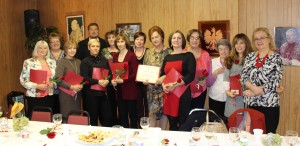
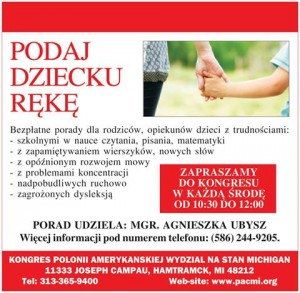
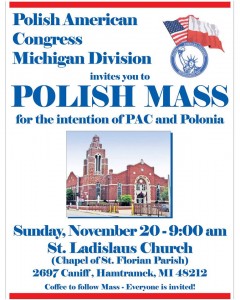
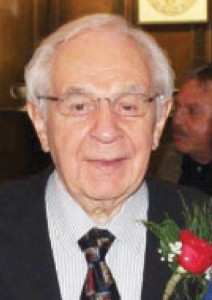
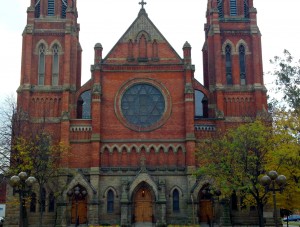
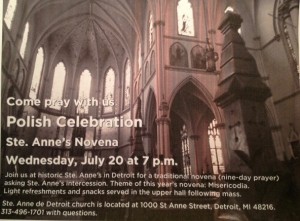
 The Polish American Congress (PAC) is a U.S. umbrella organization of Polish-Americans and Polish-American organizations. Its membership is composed of fraternal, educational, veterans, religious, cultural, social, business, and political organizations, as well as individuals.
The Polish American Congress (PAC) is a U.S. umbrella organization of Polish-Americans and Polish-American organizations. Its membership is composed of fraternal, educational, veterans, religious, cultural, social, business, and political organizations, as well as individuals.